Our Projects
EU related research projects of EURAC members:
Jean Monnet Chair Project ‘Challenges and Achievements of EU Governance’, financed by the EU
Project Coordinator: Assoc. Prof. Dr. Alexander Bürgin
Duration: September 2015 – August 2018
Project Summary
The project aimed at contributing to a more differentiated view on the EU and its achievements among the students of Izmir University of Economics. To this end, a series of six Jean Monnet Seminars has been organised during the project period, addressing current challenges of EU governance and the potential benefits of cooperation for both the EU and Turkey, such as for instance global responses to terrorism, migration management, or sustainable development. The seminars were integrated into the EU-related PSIR-courses, but also be open to other IUE students and faculty. In addition, students benefit from a new certificate programme in European Studies and a new elective course on EU Environmental Policy. Finally, two research projects were conducted. The first analysed recent trends in EU governance, such as the impact of the organisational reforms of the Juncker Commission on intra-institutional and inter-institutional relations, party politics in the EP and changes in the implementation of EU environmental policy. A second project analysed the influence of the EU on Turkish domestic politics. To this end several research trips to Brussels were realised.
‘Global Environmental Policy Learning’, financed by the British Council
Project Coordinator: Assoc. Prof. Dr. Alexander Bürgin
Duration: September 2015 – August 2018
Project Summary
Together with Kai Oppermann, Associate Professor at University of Sussex, Alexander Bürgin, Jean Monnet Chair and Head of EURAC, succesfully applied for a grant under the British Council’s Researcher Links Programme (25.000 Pound). With the grant a three-days long international workshop on global environmental policy learning has been organised in May 2016 at Izmir University of Economis. Around 30 scholars from the UK and Turkey, from a variety of disciplinary backgrounds at all career stages, ranging from PhD students and early career researchers, discussed the the efforts of international actors (e.g. UN, World Bank, EU) and transnational networks of local authorities to stimulate environmental and energy policy learning and diffusion. In addition, officials from the European Commission, Turkish NGOs and the Izmir Chamber of Commerce attended the event. A special focus was on how internationally-induced environmental/energy policy learning and diffusion can be facilitated in Turkey. The exchange between British and Turkish scholars resulted in two common research and publication projects, one on conceptual advances in environmental policy learning, and one on EU-induced policy changes in Turkey’s environment and energy policy. A further meeting of some of the workshop participants was organised at the Annual Conference of the International Public Policy Association in Singapore in June 2017 and at the Annual Conference of the Univeristy Asscocation for Contemporary European Studies in Krakow in September 2017
BAP Project "Turkey-EU Cooperation on Migration"
Project Coordinator: Asst. Prof. Dr. Alexander Bürgin
Duration: May 2013 – May 2015
Project Summary:
As Turkey has become the most important transit route for illegal migration into the European Union, the EU has a strong interest in cooperation with Turkey in the management of migration flows. Due to increasing number of illegal immigrants in Turkey, also Turkey has a strong interest in the mordernisation of its migration management. Therefore, Turkey-EU cooperation on migration is a win-win situation for both sides. The aim of the research project is to understand the enabling and constraining factors for such cooperation. Thus, this projects deals with several questions of political and theoretical interest: the EU membership perspective of Turkey, the possible lifting of the visa obligation for Turkish citizens, the interinstitutional power balance between the European Commission and the member states in the field of migration policy, the Europeanization of Turkey’s migration policy and the Europeanization of Turkey’s public administration in general.
BAP Project “Can the EU Accession Process of Turkey be reversed?
The strategies of the Turkey-skeptics in Europe and their impact on Turkey’s Membership Perspective”
Project Coordinator: Asst. Prof. Dr. Alexander Bürgin
Duration: March 2010 – September 2011
Project Summary:
The decision to open EU accession negotiations with Turkey despite divergent member state preferences can be attributed to the impact of community norms. They constrained state interaction by obliging the EU to consider applications from European countries according to the standards of liberal democracy. Therefore, Turkey’s application had to be evaluated on the basis of compliance with the Copenhagen criteria; the sufficient fulfillment of which the Commission confirmed. Member states that were against Turkey’s EU accession for socio-economic or cultural reasons could not legitimately veto the decision but were rhetorically entrapped. But how did the opponents of Turkey’s EU accession react to their normative entrapment? And: Do they still have the potential to stop the EU accession of Turkey? The research project analyzes in a first step their public discourse after the decision of 2005. In a second step the research project analyzes how successful such framing strategies are. Two levels of influence will be examined: (1) The progress of the accession talks and (2) the Turkish discourse about the desirability of the EU membership.
ANNOUNCEMENT ALL ANNOUNCEMENTS
NEWSALL NEWS

Alexander Bürgin has been awarded Jean Monnet Chair for the second time
Assoc. Prof. Dr. Alexander Bürgin, Head of European Union Reasearch and Application Center (EURAC) and lecturer at the department of ...
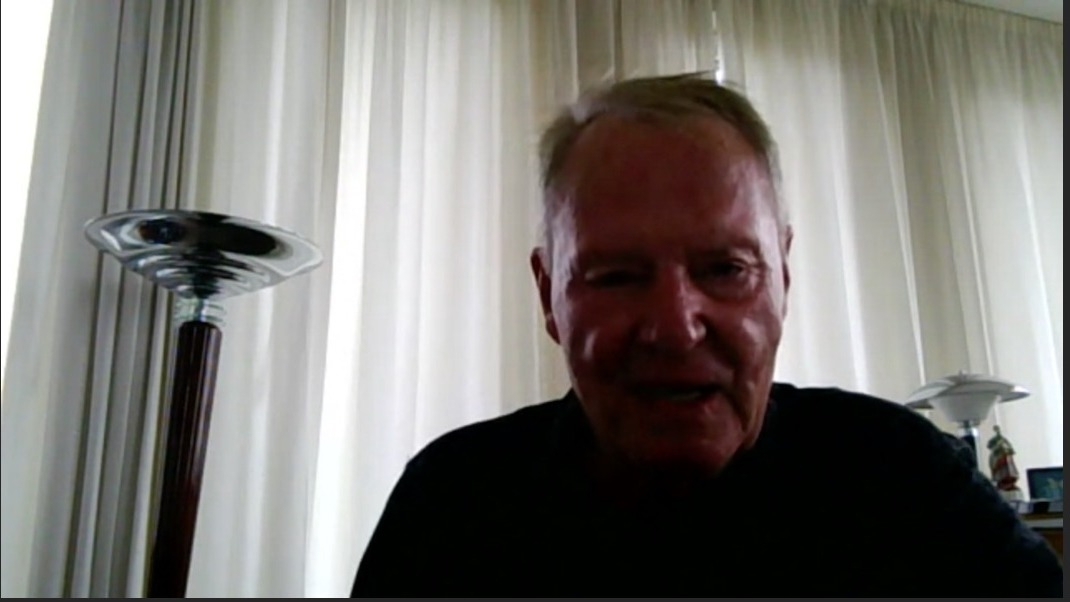
EURAC Seminar on EU’s economic policies and relations with Turkey
Hans-Olaf Henkel, Member of the European Parliament 2014 – 19, President of the Federation of German Industries 1995-2001, and President ...
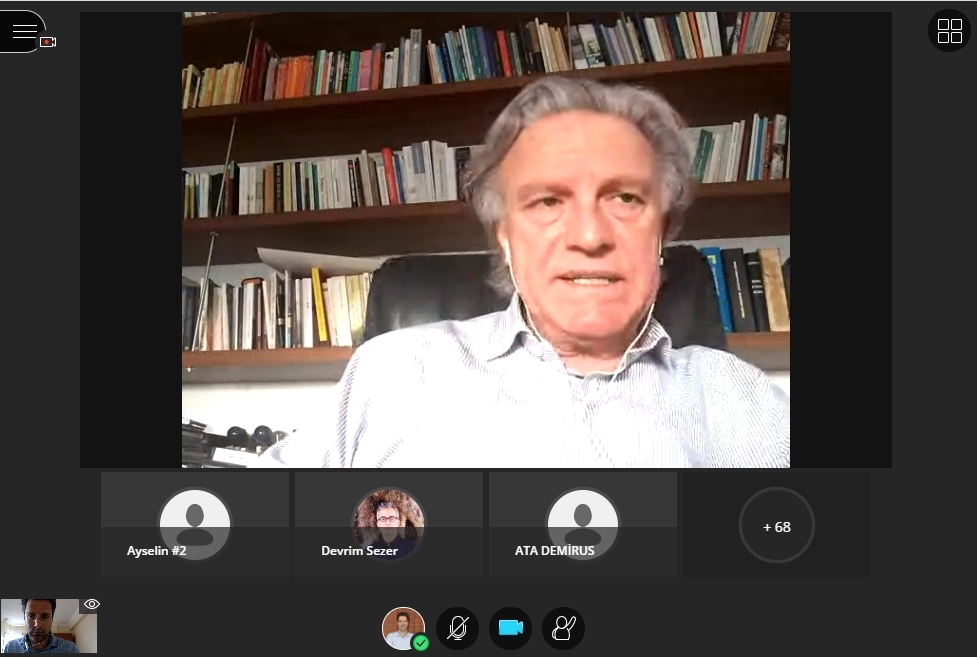
We hosted Takis Hadjigeorgiou at the EURAC Online Seminars
Takis Hadjigeorgiou, member of the European Parliament 2009-19 and Vice President of the EU-Turkey Joint Parliamentary Committee of the European ...
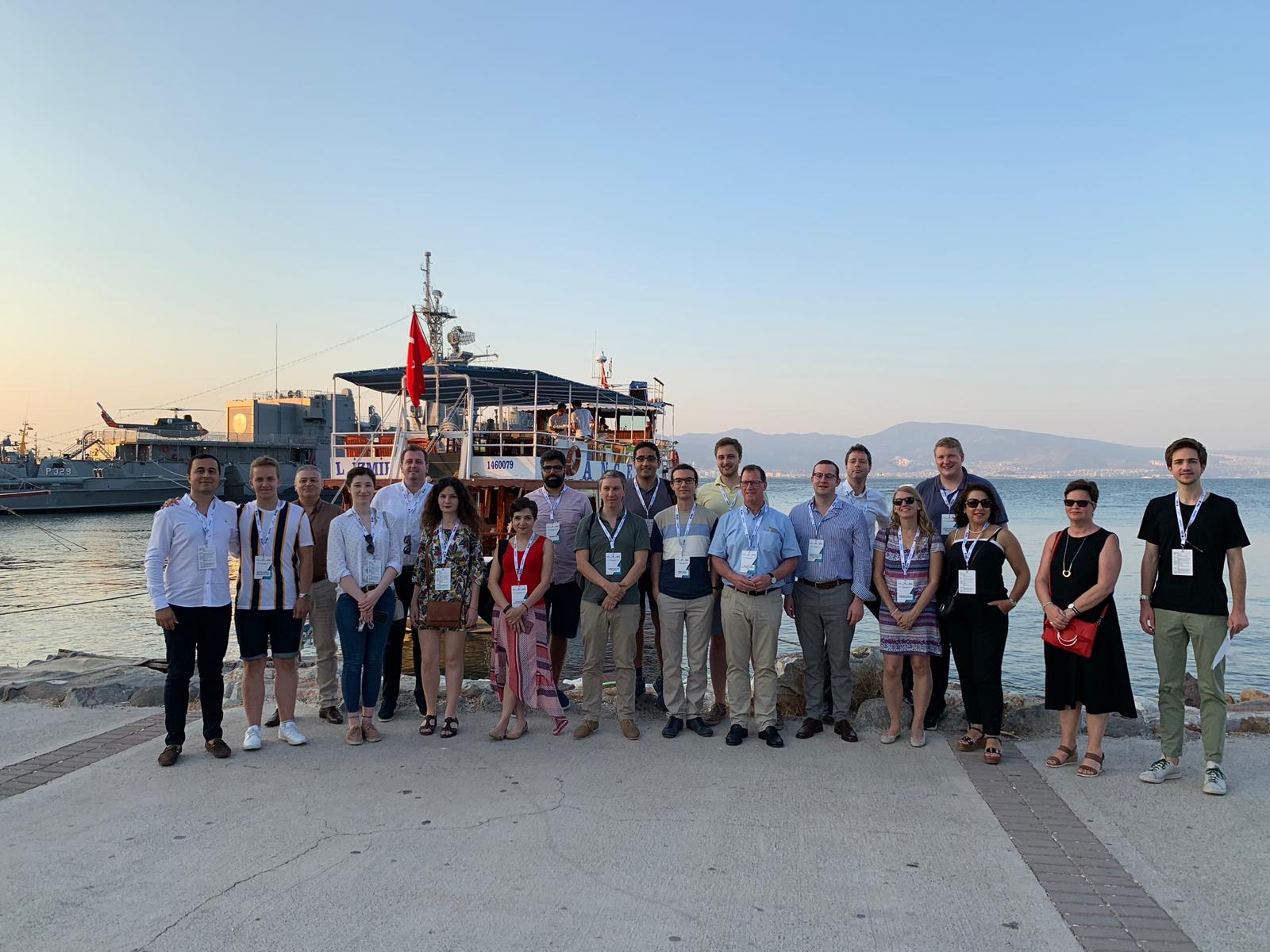
EURAC hosted German Turkish Social Market and Innovation Forum for Young Academics
In partnership with the Konrad Adenauer Foundation and the German Academic Exchange Service, the European Research and Application Center (EURAC) ...
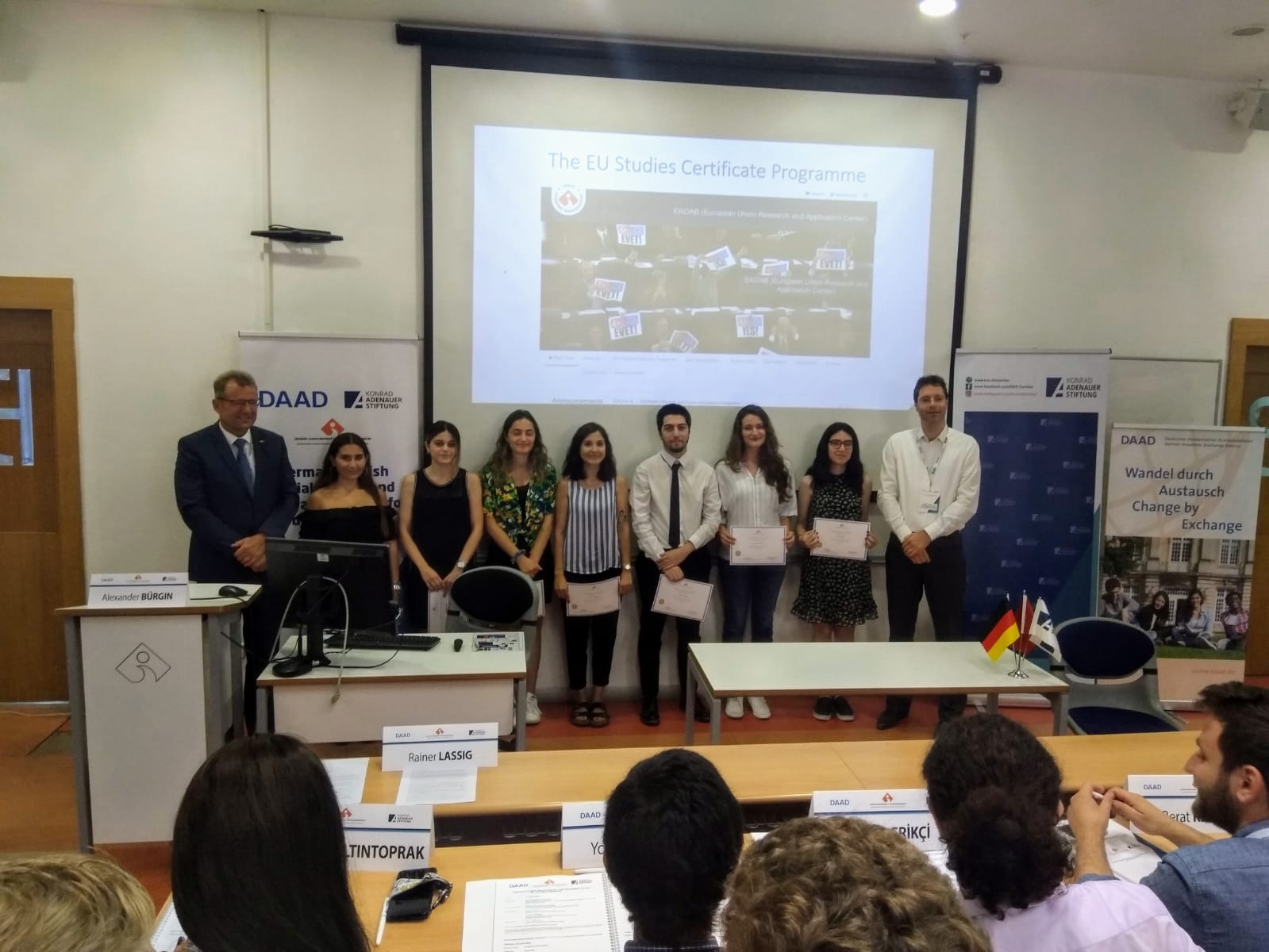
German Consul handed EU Certificate to students
Twelve students received a Certificate in European Union Studies. The certificates were handed by German Consul to Izmir, Dr. Rainer ...
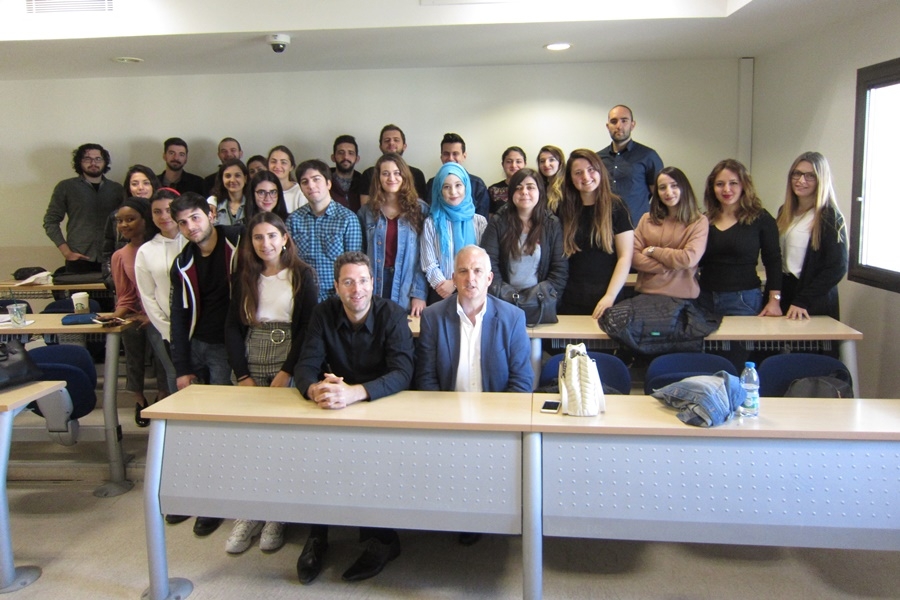
Three Seminars on the EU with Robert Evans
Robert Evans, member of the European Parliament 1994-2009, and lecturer at Royal Holloway College, University of London, hold three seminars ...
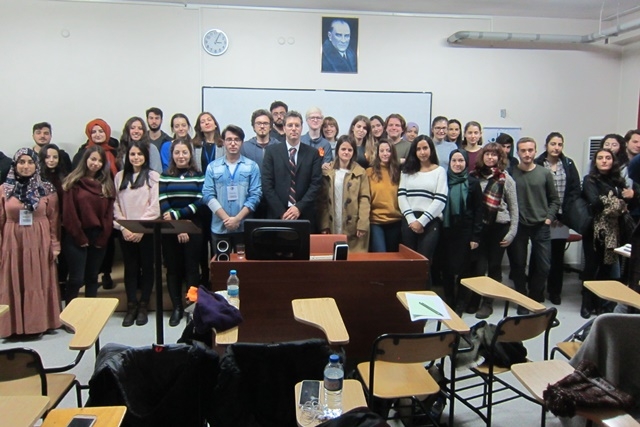
Seminar at Dokuz Eylül University
Assoc Prof. Alexander Bürgin, head of EURAC, was invited to hold a presentation on the European Union at Dokuz Eylül ...
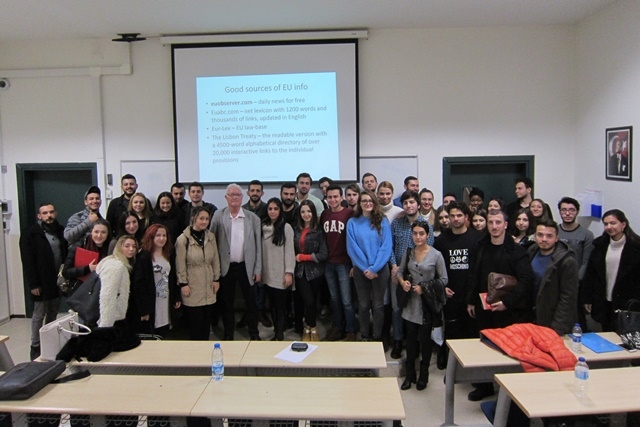
EURAC Seminar on Current Challenges for the EU
Jens-Peter Bonde, member of the European Parliament 1979-2008, hold three seminars on current challenges for the EU at IUE. ...


